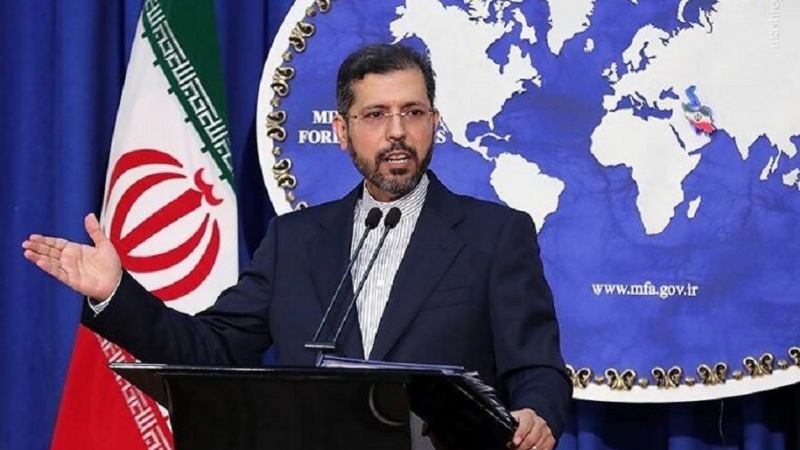“Iran has even acquired [the audio files of] their conversations, and has them on its intelligence radar,” said Iranian Foreign Ministry Spokesman Saeed Khatibzadeh in a Tuesday interview with Iran’s national radio.
“We told the Azeri side that this is not acceptable, and their highest-ranking officials promised to ally our concern,” he said.
“Our relations with the Azerbaijan Republic are very cordial, good and multi-layered, and visits to both countries’ by the two sides’ officials are ongoing,” the spokesman explained.
“There are some third groups in the region that wouldn’t want Iran and the Azerbaijan Republic to have friendly ties. Accordingly, they release fake and untrue news and try to cash in on the sentiments of the people of both countries in order to advance their own objectives,” he added.
“In the Caucasus developments, we stressed that the rights of neighbouring countries should be restored; accordingly, we welcomed the restoration of the Azerbaijan Republic’s rights; meanwhile, we believed war was not the right method to realize this and stressed the need for diplomatic ties,” he added.
“Iran and Russia helped push for diplomatic negotiations between the warring sides,” said the spokesman in a reference to the war between Armenia and the Azerbaijan Republic over Karabakh region last year.
Elsewhere in his remarks, Khatibzadeh touched upon negotiations on Iran’s nuclear program, stressing that the talks will be held in Vienna.
“We do insist that these negotiations should ensure the necessary guarantees to secure Iranian people’s interests,” he said.
“A few months after coming to power, the Biden administration decided to take part in the Vienna talks, and he has entered into these negotiations pursuing Trump’s unilateral approach,” the spokesman underlined.
“The US government has also adopted a unilateral policy on the lifting of sanctions and just wants to remove the sanctions that it wants and would like to make decisions unilaterally in this regard, but Iran insists that all sanctions should be lifted and the necessary guarantees should be given to Iran in this regard,” he noted.
He then referred to the approach adopted by the administration of new Iranian President Ebrahim Raeisi.
“Among the priorities of the Raeisi administration is interaction with neighbouring countries,” he explained.
“Between 70 to 80 percent of our trade transactions take place with neighbouring and regional countries plus China,” he said.
